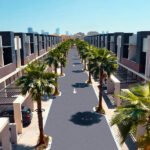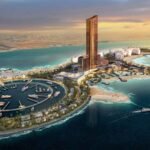Now Reading: UAE Real Estate: 6 Government Reforms Changing Investment Landscape in 2025
-
01
UAE Real Estate: 6 Government Reforms Changing Investment Landscape in 2025
UAE Real Estate: 6 Government Reforms Changing Investment Landscape in 2025

Table of Contents
The UAE real estate market, valued at AED 893 billion ($243.1 billion) with 331,300 transactions in 2024, is poised for continued growth in 2025, with Q1 transactions reaching AED 239 billion, up 22% year-on-year, per aurantius.ae.
Government reforms are reshaping the investment landscape, driving a projected 5-8% price growth and 5-11% rental yields, per skylineholding.com. These reforms enhance transparency, attract foreign investment (30% of 2024 transactions), and align with UAE’s Vision 2030 for sustainability and economic diversification, per gulfnews.com.
Below are six key government reforms transforming the UAE real estate market in 2025, their impact on investors, and actionable steps for compliance with the Dubai Land Department (DLD), Abu Dhabi’s Department of Municipalities and Transport (DMT), and Federal Tax Authority (FTA).
1. Enhanced AML/KYC Regulations
Overview: Following the UAE’s removal from the FATF Grey List in April 2024, the UAE Central Bank’s AML & CFT Regulations 2024 mandate stricter due diligence for real estate transactions, particularly those involving cash or cryptocurrency, per gtlaw.com. Real estate brokers, agents, and developers must verify client identities and report suspicious transactions above AED 55,000 ($15,000).
Impact: Increases transparency, boosting investor confidence, with 42% of Dubai’s 2023 investors being non-residents, per economymiddleeast.com. Cryptocurrency transactions, growing in popularity, must now use licensed virtual asset service providers, ensuring traceability, per natlawreview.com. Non-compliance penalties reach AED 500,000 ($136,200), per gtlaw.com.
Investment Opportunity: High-net-worth individuals (HNWIs) benefit from secure transactions, supporting luxury property demand (182,000 units planned by 2026), per economymiddleeast.com. Golden Visa-linked purchases (AED 2 million threshold) remain attractive, per mygoldenvisa.io.
Action: Ensure KYC compliance through DLD- or DMT-registered brokers. Retain transaction records for FTA audits. Use licensed virtual asset providers for crypto payments, per gtlaw.com.
2. Real Estate Tokenization Initiative
Overview: The Dubai Land Department’s Real Estate Tokenisation Project, launched in May 2024 under the Real Estate Evolution Space Initiative (REES), introduces blockchain-based property title deed tokenization, per globalgovernmentfintech.com. The pilot, in partnership with Prypco and Ctrl Alt Solutions, enables fractional ownership from AED 2,000 ($545), per arabianbusiness.com.
Impact: Broadens investor access, with the tokenized market projected to reach AED 60 billion ($16.3 billion) by 2033, comprising 7% of Dubai’s real estate, per @Cointelegraph. Enhances transparency and efficiency, reducing fraud risks, per globalgovernmentfintech.com. Currently limited to UAE ID holders but set to expand globally, per globalgovernmentfintech.com.
Investment Opportunity: Fractional ownership suits smaller investors, while tokenized luxury assets in areas like Palm Jumeirah offer 5-7% yields, per damacproperties.com. Supports Dubai’s Real Estate Strategy 2033 to increase transactions by 70%, per spglobal.com.
Action: Verify tokenization platform licensing with DLD. Ensure AML compliance for tokenized transactions. Retain digital records for FTA audits, per taxvisor.ae.
3. Expanded Golden Visa Program
Overview: The Golden Visa program, expanded in 2024, offers 10-year renewable residency for property investments of AED 2 million ($545,000) or more in freehold zones, benefiting over 100,000 investors by 2025, per damacproperties.com. Covers families (spouse, children, parents), with no sponsor required, per mygoldenvisa.io.
Impact: Drives foreign investment, with 64% of global HNWIs eyeing UAE properties, per forbes.com. Boosts demand in prime areas like Dubai Marina (7% yields) and Saadiyat Island (6-7% yields), per gulfbusiness.com. Supports Dubai’s 5-7% annual price growth, per damacproperties.com.
Investment Opportunity: Investors gain long-term residency and tax-free income, with 15-25% capital gains by 2027 in projects like Emaar Beachfront Residences, per uae-offplan.com. High liquidity in secondary markets, per arabianbusiness.com.
Action: Submit title deed, passport, and health insurance via DLD’s Golden Cube or Abu Dhabi Residents Office. Verify property valuation (AED 2 million minimum). Retain records for FTA audits, per dubailand.gov.ae.
4. Sustainable Building Mandates
Overview: Aligned with UAE’s Net Zero 2050, new regulations mandate eco-friendly designs, including solar panels and water recycling, in projects like The Sustainable City and Masdar City, per noumouproperties.com. 35% of 2025 transactions involve green properties, per economymiddleeast.com.
Impact: Increases property value by 5-10% due to sustainability premiums, with 6-7% yields in green communities, per gulfbusiness.com. Attracts eco-conscious investors, with 90% occupancy in sustainable projects, per arabianbusiness.com. Supports Dubai 2040 Urban Master Plan’s green space expansion, per damacproperties.com.
Investment Opportunity: Green properties in Masdar City (apartments from AED 800,000) offer 8-10% capital gains by 2026, per useholo.com. Eligible for Golden Visa at AED 2 million, per mygoldenvisa.io.
Action: Confirm LEED/Estidama Pearl certifications with DLD or DMT. Recover 5% input VAT on commercial expenses (e.g., AED 25,000 on AED 500,000). Retain records for FTA audits, per taxvisor.ae.
5. Flexible Ownership Laws
Overview: Since 2021, emirates like Abu Dhabi and Dubai allow 100% foreign ownership in designated freehold zones, with Abu Dhabi listing 1,105 eligible activities in 2021, per state.gov. Local branches of foreign companies no longer require Emirati agents, per state.gov.
Impact: Boosts foreign direct investment (FDI), with $11 billion in 2017 and a projected 15-20% annual surge in 2025, per khaleejtimes.com. Enhances demand for off-plan properties (63% of 2024 transactions), per gulfnews.com. Supports non-resident investors (42% of Dubai’s 2023 investors), per economymiddleeast.com.
Investment Opportunity: Affordable off-plan apartments in JVC (from AED 550,000) offer 8-9% yields, while luxury villas in Palm Jumeirah (AED 12 million) yield 5-7%, per gulfbusiness.com. High ROI in emerging areas like Dubai South, per uae-offplan.com.
Action: Verify freehold status with DLD or DMT. Register SPAs with legal advisors. Retain records for FTA audits and U.S.-UAE DTA credits via IRS Form 1118, per immigrantinvest.com.
6. Emiratization and Workforce Incentives
Overview: The Nafis program, extended in 2023, mandates Emirati employment in firms with 20-49 employees (one Emirati in 2024, two in 2025), with fines up to AED 108,000 ($29,590) for non-compliance, per state.gov. Incentives include 80% reduced MOHRE fees for compliant firms, per state.gov.
Impact: Increases operational costs for developers but enhances local workforce integration, supporting economic stability. Real estate contributes 5-7% to Dubai’s GDP, with sustained demand from a 3.5% population growth in 2025, per spglobal.com. Encourages community-focused developments, per economymiddleeast.com.
Investment Opportunity: Family-oriented projects like Azha Community in Ajman (villas from AED 1.74 million) offer 7-8% yields, driven by expatriate and Emirati demand, per bayut.com. High occupancy (85%) in suburban areas, per economymiddleeast.com.
Action: Ensure developers comply with Nafis via DLD or DMT audits. Register leases for compliance. Retain SPA and rental records for FTA audits, per taxvisor.ae.
Why These Reforms Matter
These reforms align with the UAE’s 6.2% GDP growth projection for 2025, driven by tourism (18.7 million visitors in 2024), infrastructure, and FDI, per colife.ae. The Golden Visa and ownership laws attract 64% of global HNWIs, per forbes.com, while tokenization and AML regulations enhance transparency, per globalgovernmentfintech.com.
Posts on X highlight tokenization’s potential, projecting AED 60 billion by 2033, per @Cointelegraph. Challenges include oversupply risks (182,000 units by 2026) and compliance costs, mitigated by DLD’s escrow systems and RERA’s oversight, per hausandhaus.com.
Tax Tools for American Investors
U.S.-UAE DTA: Credit UAE taxes via IRS Form 1118, preserving 10-15% returns, per immigrantinvest.com.
Zakat for Muslim Investors: Pay 2.5% Zakat on rental income (e.g., AED 2,000 on AED 80,000). Consult Islamic scholars, per taxvisor.ae.
VAT Recovery: Recover 5% input VAT on commercial expenses (e.g., AED 25,000 on AED 500,000) for VAT-registered investors, per fintedu.com.
Market Outlook and Challenges
The UAE’s real estate market thrives on government initiatives, with a 4% GDP growth in 2024 and 5% projected for 2025, per globalpropertyguide.com. Risks include construction delays (10% of 2024 projects) and geopolitical volatility, offset by a stable, dollar-pegged economy and tax-free income, per agbi.com. These reforms position the UAE as a global investment hub, offering 5-11% yields and 5-25% capital gains.
Conclusion
The UAE’s 2025 real estate reforms—AML/KYC regulations, tokenization, Golden Visa expansion, sustainable mandates, flexible ownership, and Emiratization—drive investor confidence and market growth.
By enhancing transparency, accessibility, and sustainability, these reforms attract diverse investors, from HNWIs to fractional owners. Compliance with DLD, DMT, and FTA ensures secure, high-return investments in a dynamic market. Government Reforms
read more: UAE Real Estate: 5 Smart Property Types With Best ROI in 2025






















